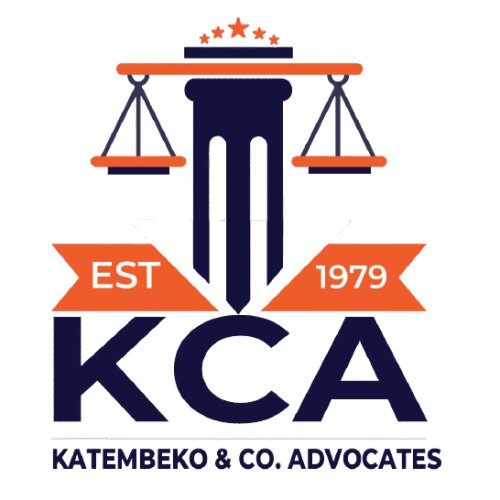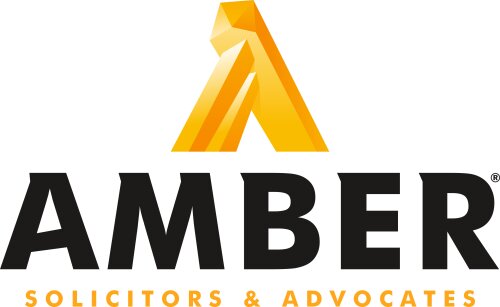Best E-commerce & Internet Law Lawyers in Uganda
Share your needs with us, get contacted by law firms.
Free. Takes 2 min.
Or refine your search by selecting a city:
List of the best lawyers in Uganda
About E-commerce & Internet Law in Uganda
E-commerce and Internet Law in Uganda is a growing field that addresses a wide range of issues related to online business activities and digital transactions. With the increase in internet penetration and mobile technology usage in Uganda, e-commerce has become an important aspect of the economy. The legal framework governing this sector includes aspects of electronic contracts, consumer protection, data privacy, intellectual property rights, and more. Uganda is continuously updating its laws to accommodate the dynamic nature of technology and online business operations.
Why You May Need a Lawyer
Individuals and businesses involved in e-commerce may require legal assistance for various reasons. Some common situations include:
- Drafting and reviewing electronic contracts to ensure compliance with local laws.
- Handling disputes related to online transactions and consumer complaints.
- Ensuring adherence to data privacy regulations and managing data breaches.
- Protecting intellectual property online, including trademarks, copyrights, and patents.
- Navigating the regulatory requirements for setting up and operating an online business.
- Dealing with issues related to cybercrime and online fraud.
Local Laws Overview
Key aspects of local laws relevant to E-commerce & Internet Law in Uganda include:
- The Electronic Transactions Act: This Act provides the legal framework for electronic communications and transactions, including digital signatures and electronic contracts.
- The Data Protection and Privacy Act: Aimed at protecting the privacy of individuals and their personal data by regulating data collection, storage, and use.
- Consumer Protection Laws: These laws protect consumers involved in digital transactions, ensuring fair practices and quality of service.
- Intellectual Property Laws: Protects the rights of individuals and businesses with respect to online content and digital products.
- The Computer Misuse Act: Provides measures for the prevention of cybercrime and the safe use of computer systems and the internet.
Frequently Asked Questions
1. What is E-commerce Law?
E-commerce Law governs the conduct of business activities and transactions conducted online or through electronic means.
2. Do I need an electronic contracts lawyer for my online business?
Yes, having a lawyer can help ensure your contracts are legally binding and comply with relevant laws.
3. How does the Data Protection and Privacy Act affect my business?
The Act requires businesses to obtain consent for data collection and provides rights to individuals over their personal data, impacting how businesses handle consumer data.
4. How can I protect my online content from being copied?
Intellectual property rights, including copyrights and trademarks, can be enforced to protect your online content.
5. What should I do if I encounter online fraud?
You should report the incident to the Uganda Police’s cybersecurity unit and consult with a lawyer for legal recourse.
6. Are there specific regulations for online advertising?
Online advertising must comply with general advertising laws, consumer protection regulations, and should not be misleading.
7. What legal aspects should I consider when starting an e-commerce business?
Consider business registration, tax obligations, electronic contracting, and consumer protection laws.
8. Can I use digital signatures for my e-commerce transactions in Uganda?
Yes, digital signatures are legally recognized under the Electronic Transactions Act for authenticating electronic documents.
9. How do I handle personal data breaches in my online business?
Have a data breach response plan, notify affected individuals, and report the breach to the National Information Technology Authority of Uganda (NITA-U).
10. What is the role of NITA-U in e-commerce?
NITA-U oversees the implementation of IT policies, standards, and guidelines, including those related to e-commerce and data protection.
Additional Resources
For further assistance, consider reaching out to the following resources:
- National Information Technology Authority of Uganda (NITA-U): Provides guidance on IT regulations and data protection.
- Uganda Revenue Authority (URA): For information on tax obligations for online businesses.
- Uganda Communications Commission (UCC): Regulates communications services, including internet services.
- Uganda Law Society: A professional body for lawyers in Uganda that can help you find legal representation.
Next Steps
If you need legal assistance in E-commerce & Internet Law, consider the following steps:
- Identify the specific legal issue you need help with, such as contracts, consumer protection, or data privacy.
- Consult with a lawyer specializing in E-commerce & Internet Law to explore your legal options.
- Ensure all your online business practices and policies are in compliance with local laws.
- Stay informed about changes in e-commerce laws and regulations in Uganda.
Lawzana helps you find the best lawyers and law firms in Uganda through a curated and pre-screened list of qualified legal professionals. Our platform offers rankings and detailed profiles of attorneys and law firms, allowing you to compare based on practice areas, including E-commerce & Internet Law, experience, and client feedback.
Each profile includes a description of the firm's areas of practice, client reviews, team members and partners, year of establishment, spoken languages, office locations, contact information, social media presence, and any published articles or resources. Most firms on our platform speak English and are experienced in both local and international legal matters.
Get a quote from top-rated law firms in Uganda — quickly, securely, and without unnecessary hassle.
Disclaimer:
The information provided on this page is for general informational purposes only and does not constitute legal advice. While we strive to ensure the accuracy and relevance of the content, legal information may change over time, and interpretations of the law can vary. You should always consult with a qualified legal professional for advice specific to your situation.
We disclaim all liability for actions taken or not taken based on the content of this page. If you believe any information is incorrect or outdated, please contact us, and we will review and update it where appropriate.
Browse e-commerce & internet law law firms by city in Uganda
Refine your search by selecting a city.

















